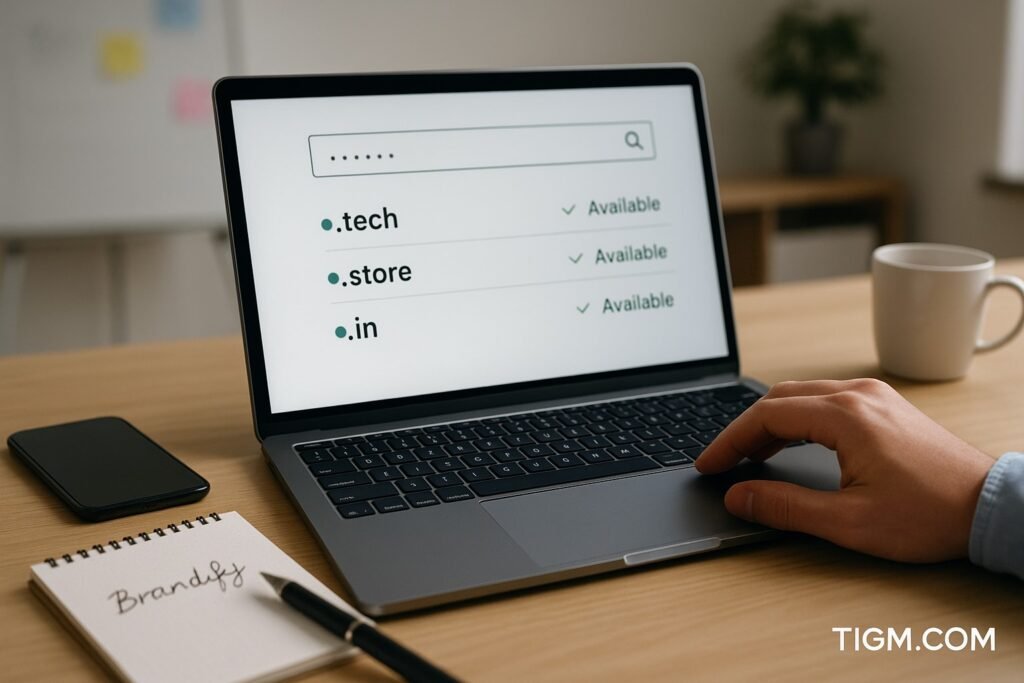A new pattern is emerging in startup naming strategies, with founders deliberately bypassing .com domains in favor of newer extensions like .tech, .store, and country-code .in—even when the .com equivalent sits available for registration.
The shift represents a fundamental change in how entrepreneurs think about digital identity. Where previous generations of founders viewed .com as non-negotiable, today’s startup builders are treating domain extensions as branding elements rather than technical necessities.
The Economics of Domain Choice
The math here is straightforward. Premium .com domains command five to six figures, sometimes more. A startup wanting Brand.com might face a $50,000 acquisition cost—capital that could fund six months of development or an initial marketing push.
Meanwhile, Brand.tech or Brand.store sits available for annual registration fees under $50. For bootstrapped founders and early-stage companies, that’s not even a decision worth agonizing over.
When Alternative Extensions Make Sense
The data suggests specific patterns. E-commerce startups are gravitating toward .store and .shop, treating the extension as category signaling rather than compromise. Tech companies are embracing .tech, .io, and .ai—extensions that telegraph industry positioning before a visitor reads a single line of copy.
Indian startups are particularly aggressive adopters of .in domains, leveraging the country-code extension as both cost savings and market positioning. In a domestic market of 1.4 billion people, optimizing for local credibility often outweighs global .com conventions.
The Credibility Question
Here’s what hasn’t changed: consumer perception studies still show .com commanding higher trust scores, particularly among older demographics and in certain industries like finance and healthcare. A cryptocurrency startup can get away with a .io domain. A wealth management firm probably can’t.
But that credibility gap is narrowing, particularly with younger, digitally native audiences who’ve grown up in a world where websites end in everything from .co to .xyz. For startups targeting Gen Z and younger millennials, extension bias barely registers.
The Search Engine Reality
Google’s position remains clear: domain extensions don’t directly impact search rankings. A well-optimized .store site can outrank a poorly maintained .com. The extension matters far less than content quality, site architecture, and backlink profile.
That said, exact-match domains still carry weight when users type queries directly into search bars. Someone searching “tech gadgets store” might click a .store result faster than a .com with an obscure brand name.
What This Means for Domain Investors
The trend creates both opportunity and risk. Premium generic .com domains retain value, but the market for mediocre .com names is softening. Meanwhile, category-killer domains in new extensions—think Shop.store or Code.tech—are appreciating as adoption grows.
Investors betting on .com scarcity alone are missing the bigger picture. The question isn’t whether .com remains valuable. It’s whether alternative extensions are becoming valuable enough to fragment the market.
The Practical Takeaway
For founders launching in 2025, the decision tree looks different than it did a decade ago. If the .com is available and affordable, take it. If it requires significant capital outlay, evaluate whether that money drives more value elsewhere in the business.


